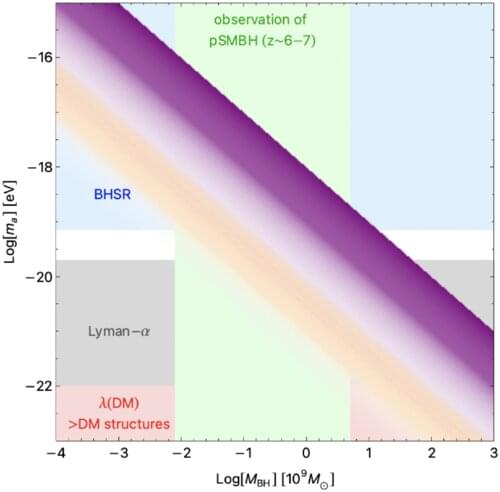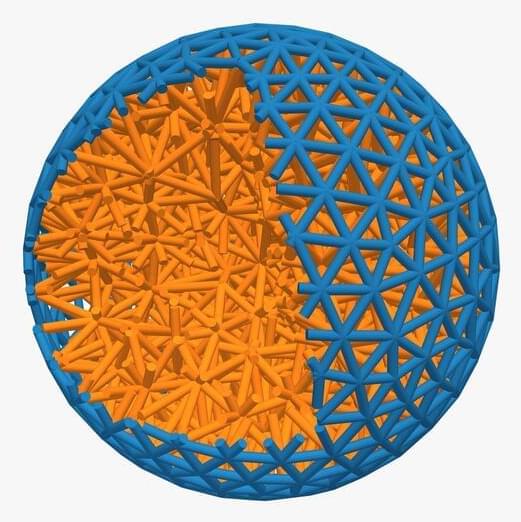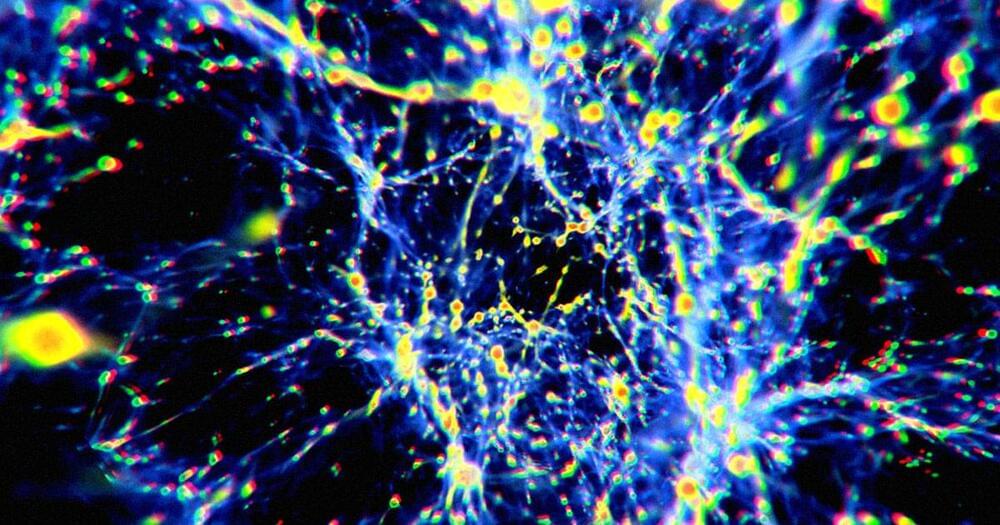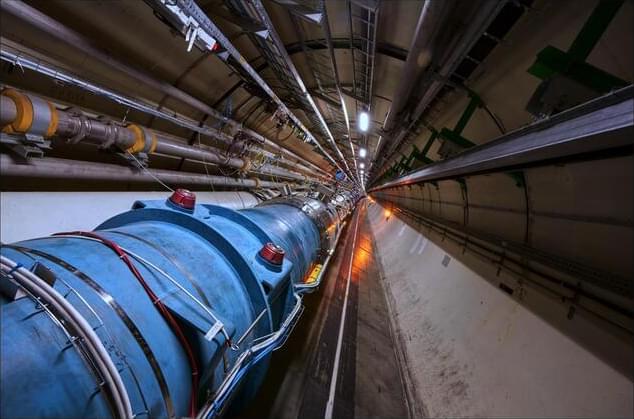Dark energy is a completely unknown source making up 70% of the universe. Will any of the new projects designed to find out what it is succeed?


This video covers the world in 2,300 and its future technologies. Watch this next video about the world in 2200: https://bit.ly/3htaWEr.
► BlockFi: Get Up To $250 In Bitcoin: https://bit.ly/3rPOf1V
► M1 Finance: Open A Roth IRA And Get Up To $500: https://bit.ly/3KHZvq0
► Jarvis AI: Write 5x Faster With Artificial Intelligence: https://bit.ly/3HbfvhO
► SurfShark: Secure Your Digital Life (83% Off): https://surfshark.deals/BUSINESSTECH
► Udacity: 75% Off All Courses (Biggest Discount Ever): https://bit.ly/3j9pIRZ
► Brilliant: Learn Science And Math Interactively (20% Off): https://bit.ly/3HAznLL
► Business Ideas Academy: Start A Business You Love: https://bit.ly/3KI7B1S
SOURCES:
• https://www.futuretimeline.net.
• The Future of Humanity (Michio Kaku): https://amzn.to/3Gz8ffA
• The Singularity Is Near: When Humans Transcend Biology (Ray Kurzweil): https://amzn.to/3ftOhXI
• Physics of the Future (Michio Kaku): https://amzn.to/33NP7f7
• https://science.howstuffworks.com/science-vs-myth/everyday-m…tation.htm.
Patreon Page: https://www.patreon.com/futurebusinesstech.
Official Discord Server: https://discord.gg/R8cYEWpCzK
💡 On this channel, I explain the following concepts:
• Future and emerging technologies.
• Future and emerging trends related to technology.
• The connection between Science Fiction concepts and reality.
SUBSCRIBE: https://bit.ly/3geLDGO
Disclaimer:

Black holes are among the most compelling mysteries of the universe. Nothing, not even light, can escape a black hole. And at the center of nearly every galaxy there is a supermassive black hole that’s millions to billions of times more massive than the sun. Understanding black holes, and how they become supermassive, could shed light on the evolution of the universe.
Three physicists at the U.S. Department of Energy’s (DOE) Brookhaven National Laboratory have recently developed a model to explain the formation of supermassive black holes, as well as the nature of another phenomenon: dark matter. In a paper published in Physical Review Letters, theoretical physicists Hooman Davoudiasl, Peter Denton, and Julia Gehrlein describe a cosmological phase transition that facilitated the formation of supermassive black holes in a dark sector of the universe.
A cosmological phase transition is akin to a more familiar type of phase transition: bringing water to a boil. When water reaches the exact right temperature, it erupts into bubbles and vapor. Imagine that process taking place with a primordial state of matter. Then, shift the process in reverse so it has a cooling effect and magnify it to the scale of the universe.

Physicists have discovered a new way to coat soft robots in materials that allow them to move and function in a more purposeful way. The research, led by the UK’s University of Bath, is described today in Science Advances.
Authors of the study believe their breakthrough modeling on ‘active matter’ could mark a turning point in the design of robots. With further development of the concept, it may be possible to determine the shape, movement and behavior of a soft solid not by its natural elasticity but by human-controlled activity on its surface.
The surface of an ordinary soft material always shrinks into a sphere. Think of the way water beads into droplets: the beading occurs because the surface of liquids and other soft material naturally contracts into the smallest surface area possible—i.e. a sphere. But active matter can be designed to work against this tendency. An example of this in action would be a rubber ball that’s wrapped in a layer of nano-robots, where the robots are programmed to work in unison to distort the ball into a new, pre-determined shape (say, a star).

Two scientists as different as could be — one a bookish astrophysicist who formerly served as NASA’s chief scientist, the other a charismatic mathematician who moonlights as a painter — have teamed up to unlock the secrets of dark matter.
From his Washington, DC office at NASA headquarters, Dr. Jim Green admitted that although he retired as NASA’s top scientist in January, he was already back as a consultant. He told Futurism the story of meeting up with his friend, Yeshiva University mathematician Ed Belbruno, when the latter invited the former to speak at the University of Augsburg in Germany.
Over lunch, they got to talking about the Pioneer Anomaly, the astrophysics-speak term for the bizarre slowing down effect witnessed by Pioneers 10 and 11. One thing led to another, and the pair soon found themselves with a long shot concept for an “Interstellar Probe” mission that they say could gather unprecedented data about dark matter and its place in the cosmos.

Circa 2015
Stanford bioengineer Manu Prakash and his students have developed a synchronous computer that operates using the unique physics of moving water droplets.
Computers and water typically don’t mix, but in Manu Prakash’s lab, the two are one and the same. Prakash, an assistant professor of bioengineering at Stanford, and his students have built a synchronous computer that operates using the unique physics of moving water droplets.
The computer is nearly a decade in the making, incubated from an idea that struck Prakash when he was a graduate student. The work combines his expertise in manipulating droplet fluid dynamics with a fundamental element of computer science – an operating clock.

The world’s first demonstration device to produce 1,000 tons of gasoline per year from carbon dioxide (CO2) hydrogenation has completed its technology evaluation and trial operation.
Located in the Zoucheng Industrial Park, Shandong province, China, the project has been jointly developed by the Dalian Institute of Chemical Physics (DICP) of the Chinese Academy of Sciences (CAS) and the Zhuhai Futian Energy Technology company. The hydrogenation of CO2 into liquid fuels and chemicals can not only realize the resource utilization of CO2 but also facilitate the storage and transportation of renewable energy.
However, activation and selective conversion of CO2 are challenging. A technology that can selectively produce energy-dense, value-added hydrocarbon fuels will provide a new route to promote the clean, low-carbon energy revolution.

In findings that could help advance another “viable pathway” to fusion energy, research led by Lawrence Livermore National Laboratory (LLNL) physicists has proven the existence of neutrons produced through thermonuclear reactions from a sheared-flow stabilized Z-pinch device.
The researchers used advanced computer modeling techniques and diagnostic measurement devices honed at LLNL to solve a decades-old problem of distinguishing neutrons produced by thermonuclear reactions from ones produced by ion beam-driven instabilities for plasmas in the magneto-inertial fusion regime.
While the team’s previous research showed neutrons measured from sheared-flow stabilized Z-pinch devices were “consistent with thermonuclear production, we hadn’t completely proven it yet,” said LLNL physicist Drew Higginson, one of the co-authors of a paper recently published in Physics of Plasmas.

In their pursuit of understanding cosmic evolution, scientists rely on a two-pronged approach. Using advanced instruments, astronomical surveys attempt to look farther and farther into space (and back in time) to study the earliest periods of the Universe. At the same time, scientists create simulations that attempt to model how the Universe has evolved based on our understanding of physics. When the two match, astrophysicists and cosmologists know they are on the right track!
In recent years, increasingly-detailed simulations have been made using increasingly sophisticated supercomputers, which have yielded increasingly accurate results. Recently, an international team of researchers led by the University of Helsinki conducted the most accurate simulations to date. Known as SIBELIUS-DARK, these simulations accurately predicted the evolution of our corner of the cosmos from the Big Bang to the present day.
In addition to the University of Helsinki, the team was comprised of researchers from the Institute for Computational Cosmology (ICC) and the Centre for Extragalactic Astronomy at Durham University, the Lorentz Institute for Theoretical Physics at Leiden University, the Institut d’Astrophysique de Paris, and The Oskar Klein Centre at Stockholm University. The team’s results are published in the Monthly Notices of the Royal Astronomical Society.